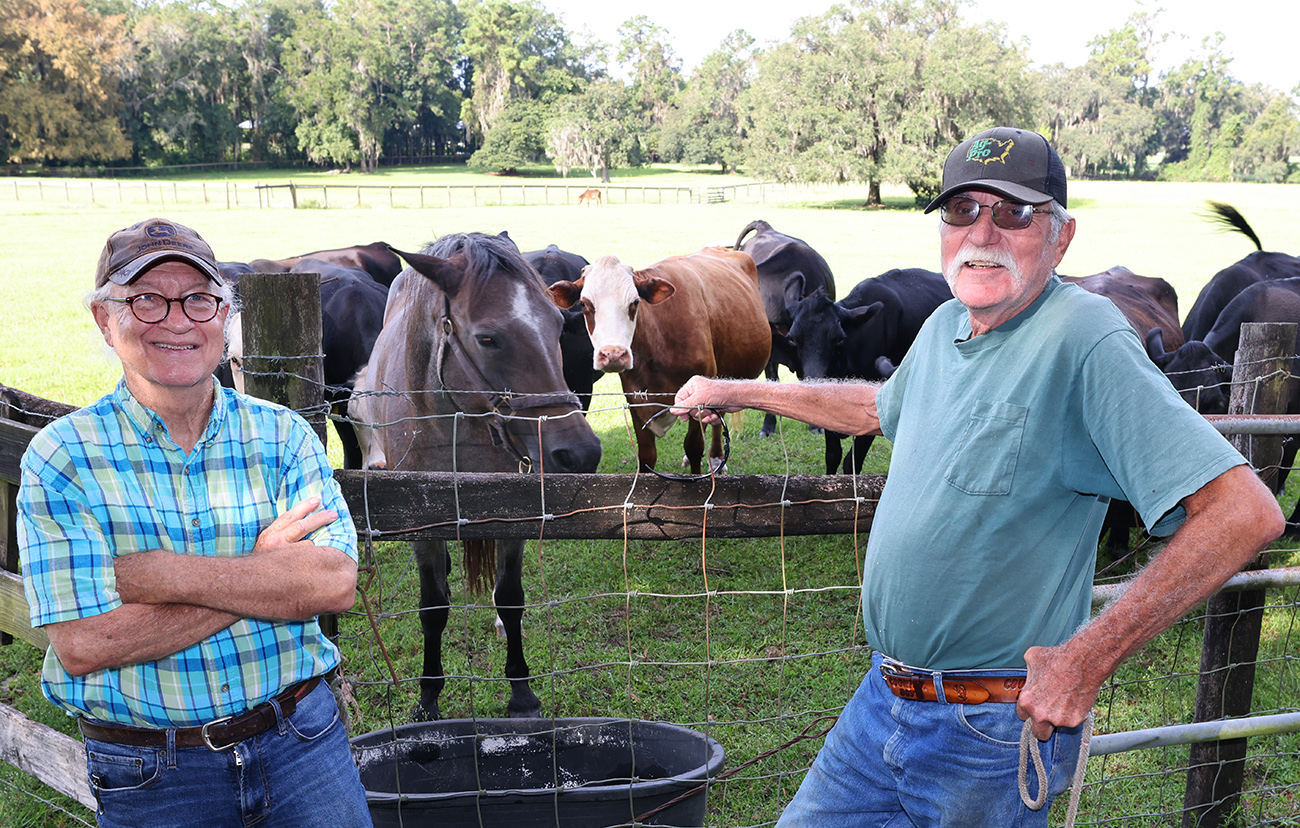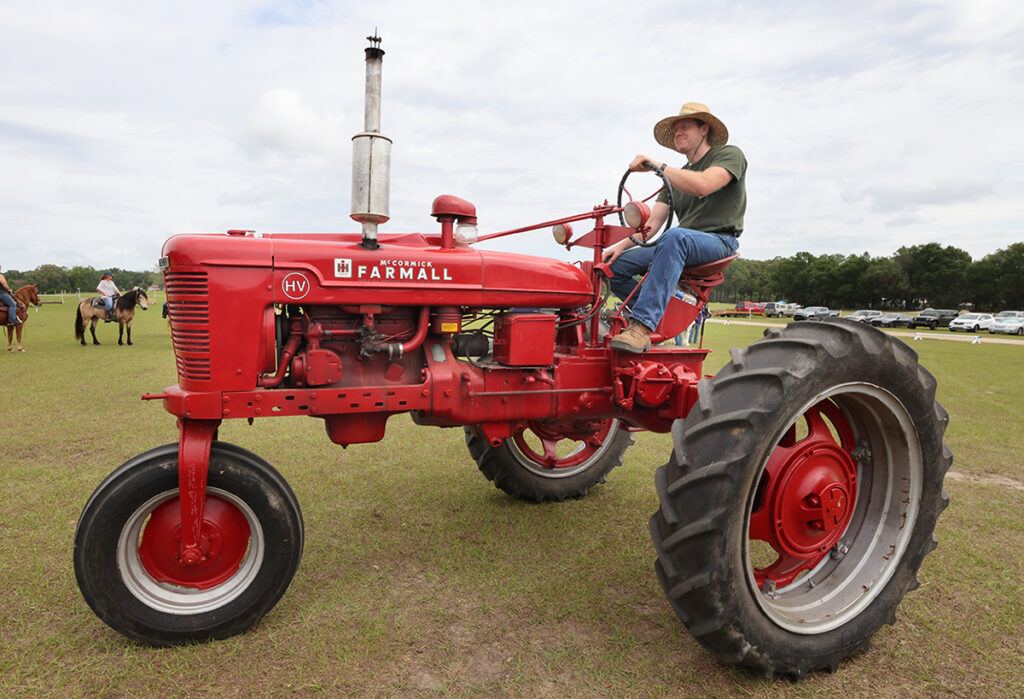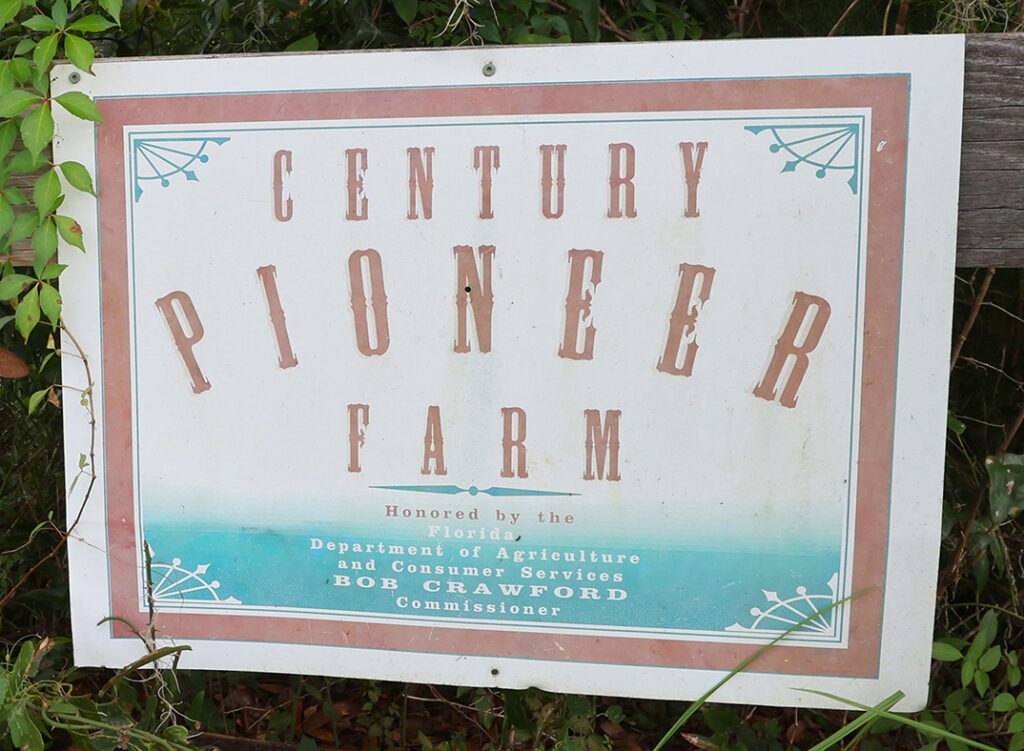The nonprofit Save Our Rural Areas (SORA) strives to protect farmland and historic communities amidst growing urban development.

While Florida is known for its beaches, a big part of the heart of the Sunshine State has always been found in its hidden beauties—the rivers, lakes, springs, wetlands and farmlands. More than a decade ago, the cost of preserving the state’s natural beauty hit home (or right next door) for northwest Marion County residents Tim Gant and Jerome Feaster and led them to found the nonprofit Save Our Rural Areas (SORA).
In 2006, a developer purchased the land neighboring Gant and Feaster’s properties in the community of Shiloh with the intent of building a conservation community in the middle of Marion County’s Farmland Preservation Area (FPA). A conservation community is a hybrid model of development with the goal of mitigating harm to the ecosystem while developing the land for homes. Marion County established the FPA in 2005 and it encompasses 190,500 acres, of which 2,500 have been lost to rezoning based on developer efforts, according to SORA.
The more than1,000 acres of wetland that bordered Gant and Feaster’s individual properties had been owned by one family for over 100 years, passed down as the family farm, and they felt it was about to be developed into a land lined with houses that lacked sufficient infrastructure.
The plan came before the Marion County Board of County Commissioners (MCBOCC) and, says Gant, president of SORA, through protests of his group the board voted down the plan.
With the ruling, SORA, a 501(c)(3) since 2006, started focusing its efforts at defending the rural character of Central Florida against big development outside of a comprehensive development plan.
“We believe growth, if it’s needed, should be centered in urban areas where the necessary infrastructure exists and not in rural area communities that wish to remain agriculturally based,” Gant says. “Our motto sums this up as: ‘Keep the country, country!’”

Composed of around 10 to 12 volunteers, the group, says Feaster, who is vice president, mostly accomplishes its work through educating citizens and lobbying at county meetings. The group also hosts the annual Farmland Preservation Festival. The event includes vendors, organizations, arts and crafts, entertainment, live animals, fresh produce and a popular tractor parade. Proceeds support SORA’s endeavors to preserve the character of local communities. They have hosted the event for the last 15 or so years, Feaster says. The 2023 festival was held in April at the Majestic Oaks equine training center in Reddick.
SORA members sit in on county meetings when there are perceived threats within the FPA and petition on behalf of the families living in other farming communities who want to maintain the rural way of life their parents passed down to them.
“I live on a pioneer farm,” Feaster says, “which is a family farm that’s been in the family for over 100 years. There’s lots of families out here in our community who have been here for over 100 years. And there’s people who have lived here for 50 years that are just as adamant about keeping the country, country as we are. Some have only been here 10 years and they still want to keep the country, country. If they didn’t, they wouldn’t have moved here.”
SORA doesn’t ask that developers not urbanize areas of Marion County; They ask that the county government keep developers away from the historically rural communities that wish to remain so.
 “As much agriculture is destined to change due to aquifer depletion and changing weather throughout the land,” Gant says, “it is imperative that rural lands remain rural—not just for the communities’ sake, but for the protection it affords to our future water supplies and for the food we all need. Not to mention the wildlife corridors these large tracts of land provide.”
“As much agriculture is destined to change due to aquifer depletion and changing weather throughout the land,” Gant says, “it is imperative that rural lands remain rural—not just for the communities’ sake, but for the protection it affords to our future water supplies and for the food we all need. Not to mention the wildlife corridors these large tracts of land provide.”
Since 2006, SORA’s efforts have paid dividends for these small rural communities but, Gant says, there remains a sense of urgency to their goal.
“After a few years of relative quiet, we have been forced to act quickly on a trio of projects that we felt threatened the Farmland Preservation Area,” Gant says. “One of those we recently settled on via negotiation with the Jockey Club’s new owners, the Roberts family, which hopefully will reduce the impact on the area the development will have. The other two, at the Irvine Interstate 75 exchange, are still in the docket and can’t be commented on at this time other than to say currently nothing definite is moving forward with regards to the proposed development.”
SORA is supported primarily by private donations. OS
To learn more about SORA, visit saveourruralarea.org and find them on Facebook.
Ocala Style’s sister publication, the Ocala Gazette weekly newspaper, has written numerous articles about topics mentioned in this article. To read them, go to ocalagazette.com and type SORA in the search window.






